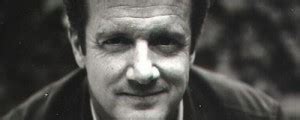A Quote by Elise Andrew
In science, every question answered leads to 10 more. I love that science can never, ever be finished. From a young age, people think, 'Science is hard and boring.' We don't tell children, 'Yes, you have to learn these formulae and theorems, but then you go on to learn about nuclear reactions and stars.'
Related Quotes
Oh, that's typical of you modern young men; you've nibbled at science and it's made you ill, because you've not been able to satisfy that old craving for the absolute that you absorbed in your nurseries. You'd like science to give you all the answers at one go, whereas we're only just beginning to understand it, and it'll probably never be anything but an eternal quest. And so you repudiate science, you fall back on religion, and religion won't have you any more. Then you relapse into pessimism...Yes, it's the disease of our age, of the end of the century: you're all inverted Werthers.
Science is the key to our future, and if you don’t believe in science, then you’re holding everybody back. And it’s fine if you as an adult want to run around pretending or claiming that you don’t believe in evolution, but if we educate a generation of people who don’t believe in science, that’s a recipe for disaster. We talk about the Internet. That comes from science. Weather forecasting. That comes from science. The main idea in all of biology is evolution. To not teach it to our young people is wrong.
I can think of very few science books I've read that I've called useful. What they've been is wonderful. They've actually made me feel that the world around me is a much fuller, much more wonderful, much more awesome place than I ever realized it was. That has been, for me, the wonder of science. That's why science fiction retains its compelling fascination for people. That's why the move of science fiction into biology is so intriguing. I think that science has got a wonderful story to tell.
We are living in a society that is totally dependent on science and high technology, and yet most of us are effectively alienated and excluded from its workings, from the values of science, the methods of science, and the language of science. A good place to start would be for as many of us as possible to begin to understand the decision-making and the basis for those decisions, and to act independently and not be manipulated into thinking one thing or another, but to learn how to think. That's what science does.
Its a consequence of the experience of science. As you learn more and more about the universe, you find you can understand more and more without any reference to supernatural intervention, so you lose interest in that possibility. Most scientists I know dont care enough about religion even to call themselves atheists. And that, I think, is one of the great things about science-that it has made it possible for people not to be religious.
The more you learn about yourself and your family tree, your self-esteem goes up. They will learn archival skills, historical analysis and science skills. You learn all this in the most seductive way, and that is through learning about yourself. Who doesn't like talking about themselves? It doesn't seem like science or history, it's just fun.
Whence came I, whither go I? Science cannot tell us a word about why music delights us, of why and how an old song can move us to tears. Science is reticent too when it is a question of the great Unity – the One of Parmenides – of which we all somehow form part, to which we belong. The most popular name for it in our time is God – with a capital ‘G’. Whence come I and whither go I? That is the great unfathomable question, the same for every one of us. Science has no answer to it.
In real science a hypothesis can never be proved true...A science which confines itself to correlating phenomena can never learn anything about the reality underlying the phenomena, while a science which goes further than this and introduces hypotheses about reality, can never acquire certain knowledge of a positive kind about reality; in whatever way we proceed, this is forever denied us.






































